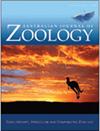Observations on populations of a small insectivorous bird, Malurus leucopterus leuconotus Dumont, after an application of two ultra-low-volume (ULV) insecticides, fenitrothion and fipronil, in arid Australia
IF 1
4区 生物学
Q3 ZOOLOGY
引用次数: 0
Abstract
ABSTRACT The use of chemical pesticides to manage locust populations in natural ecosystems is likely to impact non-target arthropods and their predators. However, the relative effects of different locust control applications on Australian birds are unknown. Aerial applications of fipronil and fenitrothion are examples of two pesticides used in locust control in semiarid Australia. To test the relative impacts of pesticides on non-target fauna, pesticides were applied to replicate sites using aerial ultra-low-volume application methods. The body condition and biomarkers of pesticide exposure in resident white-winged fairy wrens (Malurus leucopterus leuconotus) at treatment and control sites were measured for two weeks before and after treatments. No measures suggested negative impacts of pesticide applications. However, birds monitored at treatment sites gained mass, possibly due to indirect impacts of pesticides on bird feeding patterns or the availability or behaviour of insect prey. Bird mass measures remained high at fipronil sites, whereas the mass of birds at fenitrothion sites returned to baseline levels within one week. As this study was conducted during dry conditions, when locust plagues are less likely, future insecticide research should also consider the availability of insect prey, its effect on insectivore feeding behaviour and the interaction of rainfall events.澳大利亚干旱地区小型食虫鸟白斑马拉斯(Malurus leucopterus leuconotus Dumont)在施用两种超低体积(ULV)杀虫剂(杀虫磷和氟虫腈)后种群的观察
在自然生态系统中,使用化学农药管理蝗虫种群可能会影响非目标节肢动物及其捕食者。然而,不同的蝗虫防治措施对澳大利亚鸟类的相对影响尚不清楚。氟虫腈和杀虫硫磷的空中施用是在半干旱的澳大利亚防治蝗虫中使用的两种杀虫剂的例子。为了测试农药对非目标动物群的相对影响,采用空中超低量施用方法在复制点施用农药。在处理前后2周,测定处理点和对照点白翅鹩莺(Malurus leucopterus leuconotus)的身体状况和农药暴露生物标志物。没有任何措施显示施用农药会产生负面影响。然而,在处理地点监测的鸟类体重增加,可能是由于杀虫剂对鸟类摄食模式或昆虫猎物的可得性或行为的间接影响。氟虫腈地点的鸟类质量测量值仍然很高,而杀虫剂地点的鸟类质量在一周内恢复到基线水平。由于这项研究是在干旱条件下进行的,蝗灾的可能性较低,因此未来的杀虫剂研究还应考虑昆虫猎物的可获得性、其对食虫动物摄食行为的影响以及降雨事件的相互作用。
本文章由计算机程序翻译,如有差异,请以英文原文为准。
求助全文
约1分钟内获得全文
求助全文
来源期刊
CiteScore
2.40
自引率
0.00%
发文量
12
审稿时长
>12 weeks
期刊介绍:
Australian Journal of Zoology is an international journal publishing contributions on evolutionary, molecular and comparative zoology. The journal focuses on Australasian fauna but also includes high-quality research from any region that has broader practical or theoretical relevance or that demonstrates a conceptual advance to any aspect of zoology. Subject areas include, but are not limited to: anatomy, physiology, molecular biology, genetics, reproductive biology, developmental biology, parasitology, morphology, behaviour, ecology, zoogeography, systematics and evolution.
Australian Journal of Zoology is a valuable resource for professional zoologists, research scientists, resource managers, environmental consultants, students and amateurs interested in any aspect of the scientific study of animals.
Australian Journal of Zoology is published with the endorsement of the Commonwealth Scientific and Industrial Research Organisation (CSIRO) and the Australian Academy of Science.

 求助内容:
求助内容: 应助结果提醒方式:
应助结果提醒方式:


